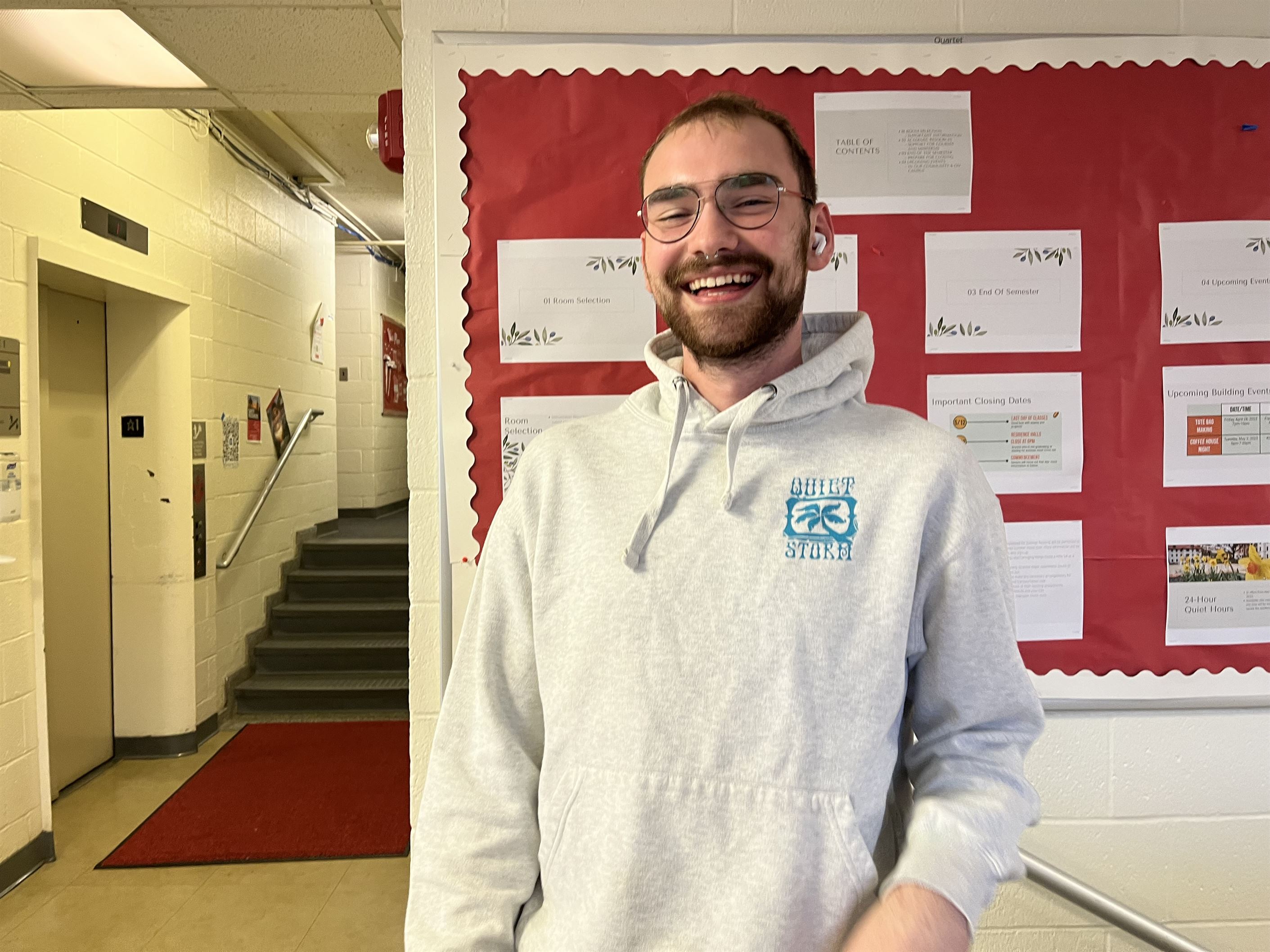ChatGPT (Chat Generated Pre-trained Transformer) is taking the Montclair State University community, along with the rest of the world, by storm. The artificial intelligence (AI) site, however, poses a greater moral question to the world of academia.
Ron Brooks, an associate professor in the department of writing studies, has been interested in the development of the site and its long-lasting effects.

Associate professor in the Department of Writing Studies, Ron Brooks, wants to take on new ways to react to ChatGPT.
Photo courtesy of Ron Brooks
“ChatGPT is not exactly AI—that’s a misconception,” Brooks said. “It’s not actually intelligent. It’s referred to as a large language model. It studies everything that’s been written, everything it has access to in its database, and to some degree, that’s just the Internet.”
While many Montclair State professors want to implement rules against the usage of ChatGPT within the classrooms, Brooks wants to take on a different approach.
“I can see situations where banning it [in the classrooms] might be useful,” Brooks said. “There’s really no reliable way to detect if it’s been used or not, so I’m not sure whether a ban is going to be effective or not.”
Alternatively, what Brooks does is implement ChatGPT into his classroom. He will ask the tool a question and also ask his students the same one. With the tool’s response in mind, Brooks’ goal is now: “How can we answer this better?”
Regardless of his implementation, Brooks still recognizes the threat ChatGPT poses to Montclair State classrooms, and even broader, the future of teaching.
“The scary side of ChatGPT is that it can produce answers that, in many situations, are ‘good enough,’” Brooks said. “It really can’t write extremely well.”
Similarly, Melinda Knight, a professor of English and the director of the Center of Writing Excellence believes that no matter the threat, ChatGPT is “here to stay.”

Melinda Knight, English professor and director of the Center for Writing Excellence, believes ChatGPT is here to stay.
Photo courtesy of Melinda Knight
“[AI] are incredible innovations—they are as important as the mobile phones,” Knight said. “[AI] are incredibly powerful tools.”
While Knight is “not interested in what the bot thinks,” she still wants to find a way to work with it, as its presence, she foretells, will be long-term. Her methods align with those of Brooks’—conjuring essays and editing along with the tool to help improve students’ communication and revision skills.
“ChatGPT is an absolute professional at writing a five-paragraph essay, which that particular formula has worked for years on standardized testing,” Knight said. “That’s not the most brilliant writing.”
Not only does ChatGPT threaten the classrooms with plagiarism (Montclair State does not have any policy against the site itself, but it would be considered plagiarism), it also brings up more severe and moral questions.
Brooks had mentioned the banning of the site in classrooms and how a complete transformation onto paper would birth accessibility issues.
“If somebody has a disability that doesn’t allow them to write by hand, then what do we do,” Knight said.
In the same vein, Knight brought up two ethical questions. For one, even if a professor assumes their student is using ChatGPT, there’s no way to actually prove it.
“It creates a lot of ethical problems because [one shouldn’t] want to say to a student, ‘You could not have written this,'” Knight said.
Additionally, with the arrival of ChatGPT, Knight fears that many students, whose first languages perhaps are not English, will be inclined to use AI for assignments.
“I have spent most of my career teaching people whose second language is English,” Knight said. “I worry that since ChatGPT spits out perfect grammatical English, someone might be encouraged to use it in fear of making mistakes.”
Professors are seemingly not the only ones worried about it. Student voices, like freshman psychology major, Justin Shillman, have taken a stance.

Freshman psychology major, Justin Shillman, worries that ChatGPT will bring about more cheating.
Navaeh Corvington | The Montclarion
“I think since [the coronavirus (COVID-19)] quarantine, cheating has been on the rise,” Shillman said. “I think ChatGPT is just another tool to cheat with, and it’s so hard to tell who’s putting in the work now.”
Shillman happens to be a student subjected to the teaching methods that Brooks and Knight propose. His college writing professor held a lesson where they read and critiqued the writing styles of a few student essays.
“One of them, she revealed after, was a ChatGPT essay,” Shillman said. “It was evident that there wasn’t a well thought out understanding of the idea [in that essay].”
ChatGPT, ultimately, is forcing teaching styles to mold to circumstance.
“If [professors] are assigning things that can be written by a computer, we are not doing enough,” Brooks said. “That’s why I feel so passionate about it. It’s a computerized mansplainer.”


